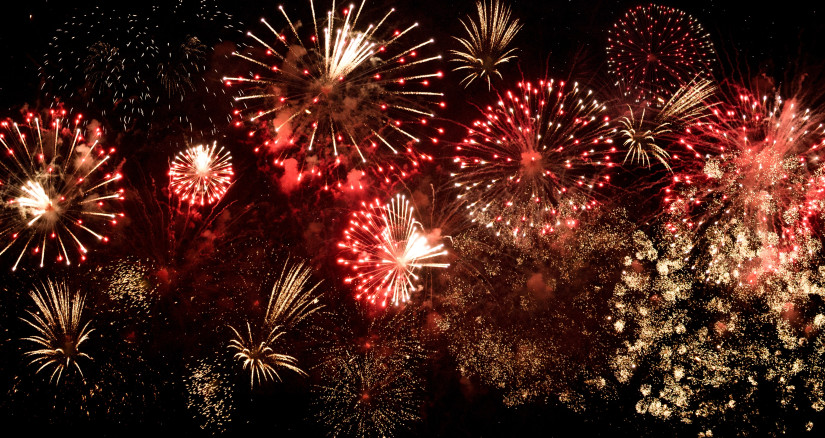
Five Quick Tips to Helping Your Pup Manage Upcoming Fireworks Season
As the weather starts to warm up, and fireworks season looms on the darkening evening horizon, it’s important to remember not everyone enjoys fireworks. Some of our pets find the bright lights and noises very stressful, so we decided to compile some top tips for helping a firework phobic pet manage the stressful season.
- First - Identify if your pet has trouble with fireworks:
- They may tremble, pant, drool, bark, yawn, pace the room, or hide from you.
- Consider other times of year associated with fireworks – have they done this previously?
- Do they experience signs of trouble from other stressful situations – unfamiliar or loud settings or groups. These dogs may benefit from discussing options during all stressful events – not just fireworks.
- Next talk to your veterinarian about your options:
- They may suggest behavior modification, medications, or other management tools.
- They will also make sure there are no medical concerns that may be playing a role in their stressed state and will help come up with a plan to addresses the problem from many angles which may include medication prior to the fireworks, environmental enrichment that may help, or tools such as pressure jackets that can help reduce stress.
- Practice avoidance!
- Don’t bring them to outdoor events with fireworks!
- Keep them indoors away from fireworks whenever possible. The less noise and lights they can be exposed to the better.
- Consider playing distracting games, or training exercises while indoors.
- Keep them safe!
- Be sure all your pets are microchipped or have ID tags on their collars, or ideally both identification methods – just in case they escape and disappear in a panic.
- Provide a safe space for them in a quiet room, or a crate, that they enjoy.
- Consider a blanket over their crate, if tolerated, to further decrease sound.
- Be sure to close all windows and doors and pull curtains where possible/necessary.
- If you must take them outside for potty breaks (preferably after the fireworks), be sure to have a secure leash on and if possible, keep them in a fenced in area.
- Consider counterconditioning and desensitization:
- These behavior modification techniques can help them relax more during stressful events.
- Using treats during stressful times, playing music or background noise to help decrease the noise can help positively impact the situation.
If you are concerned your pet has a fireworks phobia talk to your veterinarian, ideally at least a few weeks ahead of any potential fireworks events. Some management strategies require longer amounts of treatment before they become effective, or you may need to order behavior modification tools with enough time to arrive, so plan ahead and talk to your vet as soon as possible. There are many steps that can be taken to help your pet manage their stress during these sometime unavoidable events. For more information check out this more detailed article here.
Follow us on LinkedIn for the latest updates on all things happening here at BSM Partners.
About the Author
Dr. Sarah Wilson is a Board Certified Veterinary Nutritionist® and formerly served as Director of Veterinary Nutrition within Nutrition Services at BSM Partners. She has practiced clinical veterinary medicine as well as specialized in veterinary nutrition. In both a clinical setting for individual patients, and as a consultant for the pet food industry, providing appropriate nutritional advice on a small scale (single patient) or on a large scale (industry) allows Dr. Wilson to talk about her favorite things all day long: food and pets!
This content is the property of BSM Partners. Reproduction or retransmission or repurposing of any portion of this content is expressly prohibited without the approval of BSM Partners and is governed by the terms and conditions explained here.